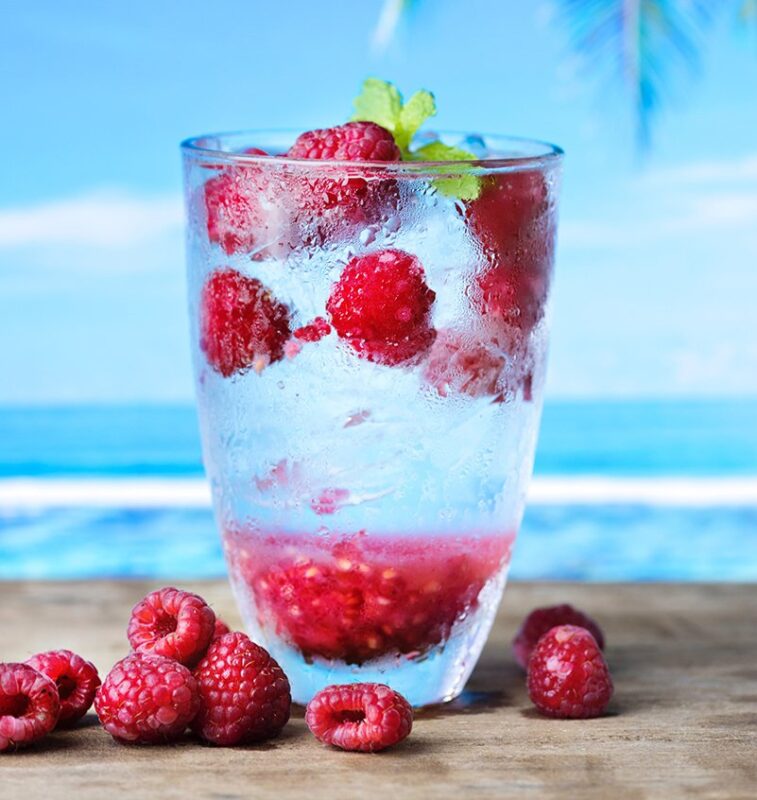 With the warm weather upon us, venturing outside to stay active is one of the greatest pleasures we have as Aussies. However, with this comes the consideration of hydration – particularly the prevention of dehydration.
With the warm weather upon us, venturing outside to stay active is one of the greatest pleasures we have as Aussies. However, with this comes the consideration of hydration – particularly the prevention of dehydration.
The Australian Government recommends drinking 2-3 litres of water a day.
When you drink a glass of water, a signal is sent to the kidneys to remove extra water by increasing urine production. However, when that drink contain nutrients and electrolytes, the stomach empties more slowly and has less of an effect on the kidneys. Water is also absorbed more quickly into the blood stream from the digestive tract and into cells. For this reason, drinks such as coconut water can improve hydration status due to its potassium and natural sugar properties. With this being said, it’s worthwhile checking the nutritional panel before you purchase them. The amount of natural sugars found in these drinks can be altered depending on when the coconuts are harvested – whilst others contain additional additive sugars.
Another easy way to stay hydrated is through the consumption of a minute amount of Himalayan salt. Just one granule of Himalayan salt in a bottle of water will quickly help replace lost electrolytes and increase the speed of water absorption.
Milk is an excellent liquid for hydration – with some research supporting that it’s better for hydration than water and sports drinks. Not only is it a high source of protein, carbohydrate, calcium and electrolytes – it also replaces the sodium lost in sweat. However, be sure to consume skim or low fat milk, as the property of fat can delay fluid replacement.
Yet another efficient way to stay hydrated is consumption of water dense fruits and vegetables. Watermelon, strawberries, celery, cucumbers and lettuce are all over 90% water and contain a variety of minerals, making them ideal for hydration. Because of these trace minerals, salts and natural sugars – water is drawn across the digestive membranes and into the bloodstream to sustain the body. For ease, create a smoothie or frappe!
Finally, if you truly want to understand your body and what lies beneath, a DEXA scan (performed by our accredited practising dietitian) pinpoints the distribution of muscle, bone density and body fat, to assist you in reaching your health and fitness goals.
You can book your scan with us by visiting https://booking.measureup.com.au/
Pip Tockuss
B.CLINEXERPHYS, (AEP,AES,ESSAM)
Accredited Exercise Physiologist

